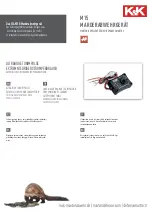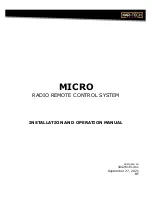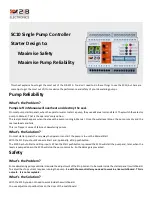
27
“Multidis SFQ”
Operation
140485280-V02.08.2019
EN
8. Operation
NOTICE
Damage to the screed from
wrong temperatures!
f
Carry out incremental heating of
concrete and calcium sulphate
screed according to DIN EN 1264-
4.
f
The instructions of the screed
manufacturer have to be observed.
f
The flow temperature must be co-
ordinated with the surface heating/
cooling system.
Near the heating pipes, the maximum
permissible screed temperatures
according to DIN must not be
exceeded. In surface cooling systems,
the temperature near the cooling pipes
must not reach the dew point.
8.1 Incremental heating test
The function of the heated floor construction is
tested during the incremental heating test.
Start the incremental heating test at the
earliest:
• 21 days after laying of concrete screed
• 7 days after laying of calcium sulphate
screed
Proceed as follows:
1. Open all valve inserts at the return collector
with the help of the protection cap.
2.
Heat up with a flow temperature between
20°C and 25°C for at least 3 days.
3.
Heat up with the maximum design flow
temperature for at least 4 days.
The flow temperature is controlled via the heat
generator control
8.2 Correction factor for mixtures
of water and glycol
The correction factors of the manufacturers of
the antifreeze liquids have to considered when
setting the flow rate.
9. Troubleshooting
Malfunctions (e.g. heating circuit does not
get sufficiently warm / cooling circuit does
not get sufficiently cold) can be caused by a
contaminated filter mesh. Clean the filter mesh
as follows:
f
Close the supply and return pipe with the
help of the ball valves.
f
Close the circuits which are not concerned.
f
Depressurise the concerned circuit via the
fill and drain valve at the return collector.
f
Unscrew the valve insert from the return
collector.
f
Depending on the degree of contamination,
clean or replace the filter mesh or replace
the valve insert.
10. Maintenance
Tightness and function of the stainless steel
distributor/collector and its connection
points have to be checked regularly during
maintenance.
















































